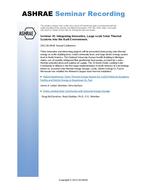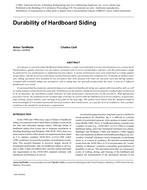Zero net energy (ZNE) buildings of different types have been designed and verified in various climates. However, as California, New York, and otherstates and jurisdictions march towards commercial new construction ZNE goals, for most buildings this target remains illusory. While state energy codeshave taken great strides in improving energy efficiency requirements for buildings, efficiency levels are reaching an asymptote under today’s prescriptivecompliance path.
To accelerate adoption of best practices, energy codes should provide compliance paths for newer technologies that offer performance improvements under anintegrated design strategy as opposed to the traditional approach of incorporating the lowest common denominator. Energy codes should focus on wholebuilding performance while permitting, if not promoting, high performance designs that go beyond component efficiencies.
While impacts of climate on building design are embedded in code requirements, energy codes do not often incorporate design requirements and constraintsof specific building types into required efficiency levels. Energy efficiency criteria for specific building types can help promote cost-effective improvementsbetter aligned with industry practices. For example, warehouse buildings offer tremendous opportunities to achieve ZNE in the near term, but there islittle direction for designers to achieve such targets. Recent ASHRAE Advanced Energy Design Guides for ZNE buildings highlight the importance ofproviding guidance for specific building types.
Stretch Codes, such as recently developed by New York, provide enforceable mechanisms for higher building performance levels. Progressive cities can adoptthem to serve as “proving grounds”. They provide forward-looking steps that states may take one or two code cycles ahead of current requirements, actingas a signal to industry. Zero net energy buildings require concrete energy performance targets, and focusing on building types most feasible for zero netenergy will help move ZNE out of the niche realm and closer to code.
Citation: 2020 Virtual Conference Papers
Product Details
- Published:
- 2020
- Number of Pages:
- 8
- Units of Measure:
- Dual
- File Size:
- 1 file , 1.4 MB
- Product Code(s):
- D-VC-20-C003


